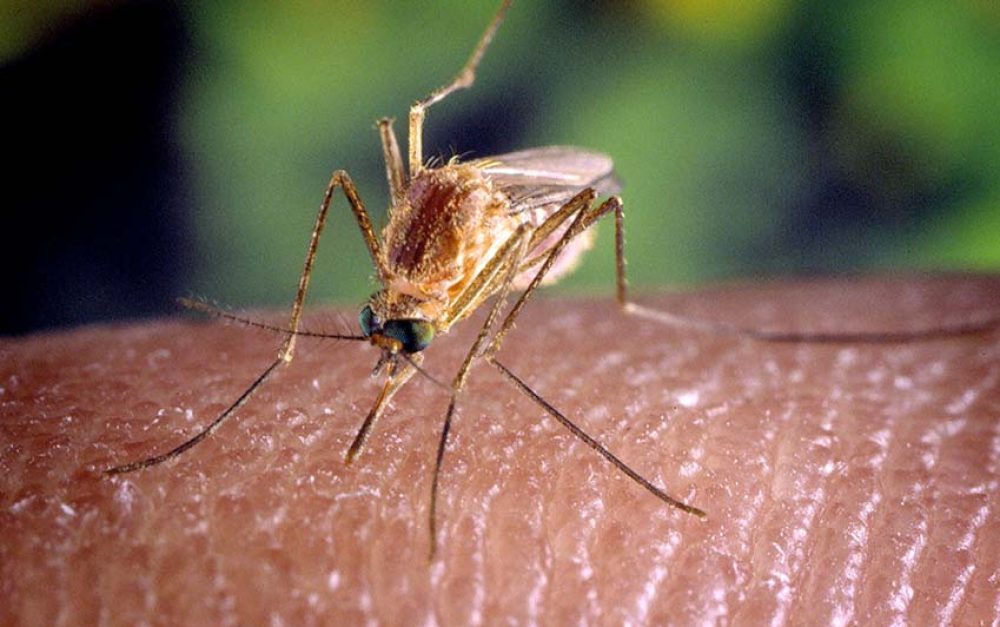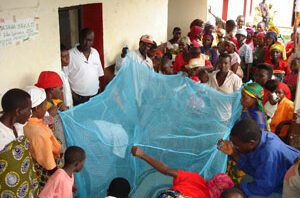As we honor World Malaria Day, we in the PAN International network stand with communities around the world suffering from the scourge of this disease. At PAN Africa, we also continue our community work to share better information about environmental strategies for mosquito control — with great progress in communities near Dakar, Senegal, where we’ve been working since 2012.
We are heartened to note the progress made in preventing malaria in Africa, as reported by the World Health Organization (WHO). However it is very concerning to note that of the 73 countries that provided monitoring data to WHO from 2010 onward, 60 countries reported insect resistance to at least one insecticide and 50 reported resistance to 2 or more insecticides. This highlights the problem of relying on insecticide-based strategies for vector control — whether it be for malaria, dengue, yellow fever, Zika or any other vector-borne disease. Ultimately disease vectors and parasites develop resistance to the insecticide and it becomes almost ineffective in the long run.
The World Health Organization underscored the problem in their 2012 guidance on policy making for Integrated Vector Management (IVM):
Resistance to insecticides is an increasing problem in vector control because of the reliance on chemical control and expanding operations . . . Furthermore, the chemical insecticides used can have adverse effects on health and the environment.”
Integrated Vector Management
Vector control relying on a community-based, least-toxic version of Integrated Vector Management (IVM) has proved to be much more effective in the long run in controlling mosquito populations and the diseases they transmit. Some examples of successes have been documented in Mexico, in Vietnam and in the work done by the International Center for Insect Physiology and Ecology in Kenya.
In our work with communities in Senegal, we have observed the successes of IVM firsthand over the last decade. PAN Africa has been engaged in ongoing malaria control projects by using environmental strategies in a few villages near Dakar in Senegal; the experience has shown that when communities are at the forefront of active mosquito control and malaria management efforts — using the least toxic, yet very effective IVM methods — significant reductions in malaria incidences can be observed.
Using IVM also reduces the health hazards that communities are exposed to as a result of insecticide spraying. For in-depth information on Integrated Vector Management as a policy approach, please click here.
Saying no to the worst ‘solutions’
In the past, highly hazardous pesticides like DDT were used for malaria control. As the science around the health hazards of DDT became clear and convincing, the global community decided to turn away from such “solutions.” DDT was banned for all agricultural and most other uses through the Stockholm Convention on Persistent Organic Pollutants back in 2001. However, bowing to pressure from certain countries, the exemptions from this ban for disease vector control is still allowed.
It has been almost 16 years since this ban and exemption were put in place. The science on disease vector control and Integrated Vector Management has developed and grown, and effective alternatives to spraying people’s homes with DDT have been developed though a focus on least-toxic methods. The Global Alliance for Alternatives to DDT was set up to develop, scale up and promote alternatives to DDT in vector control efforts. However, the DDT exemption still remains on the books in the Stockholm Convention.
This very day, we at PAN Africa are attending the Conference of Parties of the Stockholm Convention in Geneva. We urge the Parties of the Stockholm Convention to renew their commitment to the ban on the use DDT for disease vector control and minimize acceptance of requests from countries for exemptions from this ban. There are very effective Integrated Vector Management approaches, not relying on the use of DDT, that have been proven to work well in African, Latin American and Asian contexts to control vector borne diseases. As my colleague Nadia Tih said,
Community level work on the ground in various African countries has shown that Integrated Vector Management can achieve successful vector control. We call on the Stockholm Convention to not approve further exemptions from the DDT ban for vector borne disease control.”
Given the effective alternatives to using hazardous pesticides, it is essential that governments around the world focus on supporting IVM strategies that are least toxic and can be sustained over the long term through community leadership and participation.







